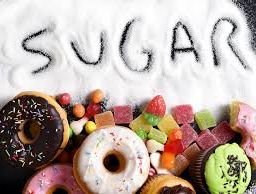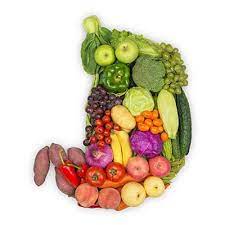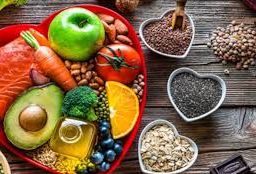
Harmful Foods: Avoid These Everyday Culprits for Better Health
Welcome to our eye-opening exploration of harmful foods that may unknowingly jeopardize your well-being. In today’s fast-paced world, it’s crucial to understand how everyday food choices can impact our health. Join us as we uncover the culprits lurking in our diets and learn how to make informed decisions for a healthier lifestyle.

In the hustle and bustle of modern life, it’s easy to overlook the impact our everyday food choices have on our health. We often indulge in convenience, taste, and familiarity, unknowingly subjecting our bodies to potential harm. In this eye-opening post, we will explore some seemingly harmless everyday foods that can have adverse effects on our well-being. It’s time to uncover the harmful foods and make informed decisions for a healthier life.
Harmful Foods that can Impact your Health:
1. Sugary Drinks:
Let’s start with a guilty pleasure enjoyed by many: sugary drinks. They may satisfy your sweet tooth and offer a quick energy boost, but they come at a steep price. Regular consumption of sugary beverages has been linked to obesity, type 2 diabetes, heart disease, and dental problems. Swap them for healthier alternatives like infused water, herbal teas, or homemade fruit juices.
2. Processed Meats:
That quick sandwich with deli meat might be a convenient option for lunch, but it may be harming your body in the long run. Processed meats are harmful foods often loaded with additives, sodium, and unhealthy fats. Studies have associated their consumption with an increased risk of colorectal cancer, heart disease, and other health issues. Opt for fresh, lean cuts of meat or explore plant-based protein sources for a healthier alternative.

3. Trans Fats:
Trans fats, also known as partially hydrogenated oils, lurk in many processed foods, including fried snacks, baked goods, and margarine. These fats can raise your bad cholesterol levels while simultaneously lowering good cholesterol, leading to an elevated risk of heart disease, stroke, and diabetes. Be vigilant and check food labels to avoid these hidden culprits. Choose natural fats like olive oil, avocados, and nuts instead.
4. Refined Grains:
White bread, white rice, and other refined grain products may be staples in our diets, but they lack essential nutrients and fiber. When grains are refined, their outer layers, which contain valuable nutrients, are stripped away. This can lead to blood sugar spikes, weight gain, and an increased risk of chronic diseases. Opt for whole grain alternatives like quinoa, brown rice, or whole wheat bread for a nutrient-rich boost.
5. Artificial Sweeteners:
While artificial sweeteners may seem like a healthier alternative to sugar, they can have adverse effects on the body. Research suggests that their consumption may disrupt the body’s natural ability to regulate calorie intake, leading to weight gain and metabolic disorders. Furthermore, they can trigger cravings for sugary foods, perpetuating an unhealthy cycle. Moderation is key, and natural sweeteners like stevia or honey can be better alternatives.

6. Fast Food:
In today’s fast-paced world, fast food has become a convenient option for many. However, these meals often contain excessive amounts of unhealthy fats, sodium, and calories. Regular consumption of fast food has been linked to weight gain, heart disease, high blood pressure, and diabetes. Instead, try cooking at home using fresh ingredients to control the quality of your meals and opt for healthier alternatives when eating out.
7. Artificial Food Additives:
Many processed foods are harmful foods loaded with artificial food additives, including preservatives, colorings, and flavor enhancers. These additives may provide a longer shelf life and enhance taste, but they can have negative effects on our health. Some individuals may experience allergic reactions or intolerances to certain additives, while others may be sensitive to the artificial chemicals present. Whenever possible, choose whole, unprocessed foods and read labels to avoid products with excessive artificial additives.
8. High-Fructose Corn Syrup (HFCS):
HFCS is a commonly used sweetener found in numerous processed foods and beverages. It has been linked to obesity, insulin resistance, type 2 diabetes, and other metabolic disorders. HFCS is often added to foods that we may not suspect, such as sauces, dressings, and even bread. Developing an awareness of food labels and reducing the consumption of HFCS can help protect your health.
9. Packaged Snacks:
While convenient and tempting, packaged snacks like chips, cookies, and crackers are harmful foods usually high in unhealthy fats, refined grains, sugars, and sodium. These snacks often lack essential nutrients and can contribute to weight gain, nutrient deficiencies, and chronic diseases. Instead, choose nutrient-dense snacks like fresh fruits, vegetables with hummus, or homemade trail mix to satisfy your cravings.

10. Soft Drinks:
Soft drinks, including regular and diet sodas, are not only packed with added sugars or artificial sweeteners, but they also lack nutritional value. Regular consumption of these beverages can lead to weight gain, tooth decay, weakened bones, and an increased risk of chronic conditions such as diabetes and heart disease. Opt for healthier alternatives like sparkling water infused with fruit or herbal iced tea to quench your thirst.
11. Excessive Salt:
While sodium is an essential mineral, consuming excessive amounts of salt can have detrimental effects on our health. High salt intake has been linked to hypertension, water retention, and an increased risk of heart disease and stroke. Processed foods, canned soups, and savory snacks are often loaded with hidden salt. Be mindful of your salt intake and opt for fresh ingredients and herbs to flavor your meals instead.
12. Artificial Trans Fats:
Artificial trans fats are created through a process called hydrogenation, which turns liquid oils into solid fats to extend shelf life. These fats are commonly found in baked goods, fried foods, and some margarines. Artificial trans fats have been strongly linked to heart disease, inflammation, and increased LDL cholesterol levels. Read food labels carefully and avoid products that contain “partially hydrogenated oils” to protect your cardiovascular health.
13. High Mercury Fish:
While fish is generally considered a healthy food, certain varieties can be high in mercury, a toxic metal that accumulates in fish due to water pollution. Long-term consumption of high-mercury fish, such as shark, swordfish, and king mackerel, can lead to neurological and developmental issues, particularly in pregnant women and young children. Opt for low-mercury options like salmon, sardines, and trout, which are rich in omega-3 fatty acids and have numerous health benefits.
14. Artificial Food Coloring:
Artificial food coloring is widely used to enhance the visual appeal of processed foods, beverages, and even medications. These synthetic dyes have been associated with hyperactivity in children, allergic reactions, and potential carcinogenic effects. Choose natural alternatives like beet juice, turmeric, or spirulina powder to add vibrant colors to your homemade dishes.
15. Highly Processed Vegetable Oils:
Vegetable oils like soybean, corn, and sunflower oil are harmful foods commonly used in cooking and food processing. However, these oils undergo extensive refining processes, including high heat, chemical extraction, and deodorization, which can lead to the formation of harmful compounds. The excessive consumption of highly processed vegetable oils has been linked to inflammation, oxidative stress, and an imbalance of omega-3 to omega-6 fatty acids. Opt for healthier alternatives like olive oil, avocado oil, or coconut oil for cooking and dressing your meals.
16. Added Sugar in Foods:
Sugar is prevalent in many processed foods, including cereals, yogurt, sauces, and even seemingly healthy snacks. Consuming excessive amounts of added sugar can contribute to weight gain, obesity, type 2 diabetes, and dental issues. It is essential to read food labels and be aware of hidden sugars under different names such as sucrose, high-fructose corn syrup, or dextrose. Choose whole foods and opt for natural sweeteners like fresh fruits or small amounts of honey or maple syrup.

17. Artificial Flavorings and Enhancers:
Artificial flavorings and enhancers are harmful foods commonly used in processed foods to mimic natural flavors or enhance taste. However, these additives can have negative effects on our health. Some people may experience adverse reactions or sensitivities to these artificial compounds. Moreover, relying on artificial flavors can dull our taste buds and make it harder to appreciate the natural flavors of whole, unprocessed foods.
18. Non-Organic Produce with Pesticides:
Conventionally grown fruits and vegetables are often sprayed with pesticides to protect them from pests and diseases. Unfortunately, these chemicals can linger on the produce, and regular exposure to pesticides has been linked to various health issues, including hormonal disruption, developmental problems, and an increased risk of certain cancers. Whenever possible, choose organic produce or follow the Environmental Working Group’s “Dirty Dozen” list to prioritize purchasing organic versions of the most pesticide-laden fruits and vegetables.

19. High-Sodium Condiments and Sauces:
Condiments and sauces like ketchup, barbecue sauce, and soy sauce may seem innocuous, but they can pack a significant amount of sodium. Excessive sodium intake can contribute to high blood pressure, fluid retention, and strain on the kidneys. Be mindful of the sodium content in these flavorings and opt for low-sodium or homemade versions to control your intake.
20. Energy Drinks:
Many individuals turn to energy drinks to boost their performance or stay awake, but these beverages can be harmful to the body. Energy drinks are typically high in caffeine, added sugars, and other stimulants. Excessive consumption of energy drinks can lead to increased heart rate, high blood pressure, insomnia, and even adverse cardiovascular events. Instead, prioritize getting sufficient rest, hydrate with water, and fuel your body with nourishing foods for sustained energy.

In conclusion, our everyday food choices significantly impact our well-being. By avoiding or minimizing the consumption of the aforementioned, we can prioritize our health and make conscious decisions about what we put into our bodies. Remember, moderation and a focus on whole, harmful foods are key to maintaining a balanced and nourishing diet. Small changes in our eating habits can have a significant impact on our overall health, leading to increased energy, vitality, and longevity. It’s time to nourish ourselves with whole, nutritious foods and pave the way for a healthier future. Let us embark on journey towards better health and vitality by making informed choices and fueling our bodies with care, one healthy bite at a time. It is crucial to be mindful of our everyday food choices and understand their potential impact on our well-being. By recognizing the harmful effects of certain foods, we can make informed decisions and prioritize our health.
Disclaimer: The information provided in this content is for general informational purposes only. It is not intended as medical or healthcare advice, diagnosis, or treatment. Always seek the advice of a qualified healthcare professional with any questions you may have regarding a medical condition or healthcare decisions.
















